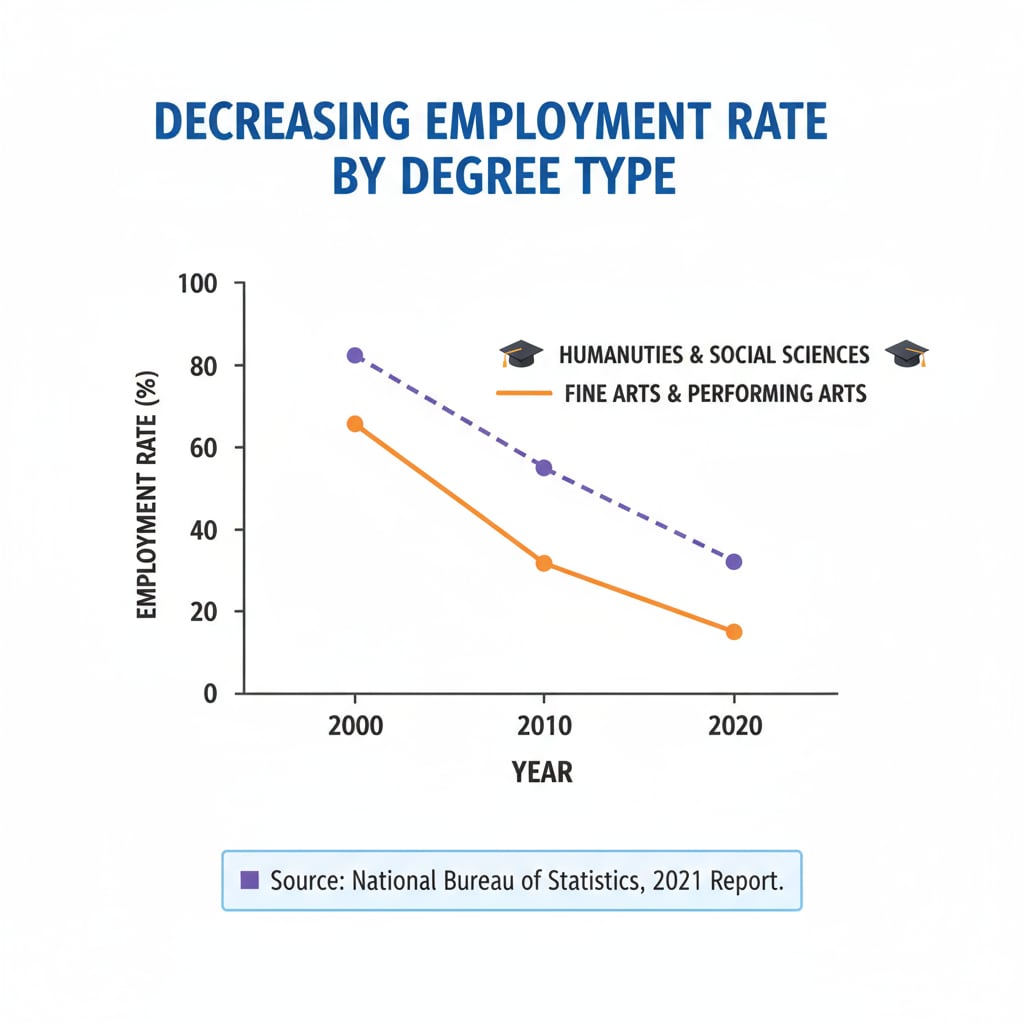In today’s rapidly evolving world, the relationship between university degrees, the job market, and career development has become a topic of great concern. The once-clear path of obtaining a university degree to secure a promising career is now fraught with challenges. As the job market undergoes significant transformations, it has become evident that there is a growing disconnect between what universities teach and what employers require. This has far-reaching implications for students’ career prospects and the overall effectiveness of the education system.
The Widening Gap between Degrees and the Job Market
The traditional belief that a university degree guarantees a good job is being increasingly challenged. Many graduates find themselves struggling to secure employment in their chosen fields, despite investing years of time and effort into their studies. The job market has become highly competitive, with employers seeking candidates who possess not only academic knowledge but also practical skills, critical thinking abilities, and the capacity to adapt to new technologies and work environments. However, university curricula often lag behind in keeping up with these changing demands. For example, fields such as technology and digital marketing are evolving at a rapid pace, but universities may not be able to update their courses quickly enough to cover the latest trends and tools. Education on Britannica

Implications for Career Development
This disconnect between university degrees and the job market has serious implications for students’ career development. Graduates may find themselves starting their careers in entry-level positions that do not fully utilize their academic knowledge, or they may be forced to take jobs outside of their intended fields. This not only leads to frustration and disappointment but also can slow down their career progression. Moreover, the lack of alignment between education and the job market can result in a skills gap, where employers struggle to find qualified candidates to fill their positions. This can have a negative impact on the economy as a whole, as businesses may face difficulties in growing and innovating. Career Development on Wikipedia

The challenges posed by the disconnect between university degrees and the job market also extend to the K12 education system. K12 education is the foundation upon which higher education is built, and it plays a crucial role in preparing students for the future. With the changing demands of the job market, there is a need for K12 education to reevaluate its goals and approaches. Instead of focusing solely on academic achievement, K12 education should aim to develop students’ core competencies, such as communication skills, problem-solving abilities, and creativity. These skills will be essential for students to succeed in the modern workplace, regardless of the specific career path they choose.
Readability guidance: By clearly presenting the issues and their implications, and using examples and external references, we can better understand the complex relationship between university degrees, the job market, and career development. It is important to recognize the need for change in the education system to bridge this gap and prepare students for a successful future.


